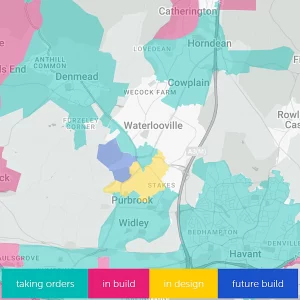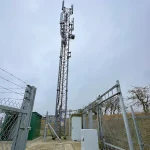Sponsored Links
EU Adopts New Rules to Protect Open Internet and Encourage ISP Transparency
Posted: 19th Apr, 2011 By: MarkJ
 The European Commission (EC) has today adopted a new set of rules that aims to preserve the open internet and Net Neutrality (i.e. the principal of treating all internet traffic as equal) by making sure that member states and broadband ISPs adopt new standards to ensure greater transparency of any traffic restrictions (e.g. Traffic Management).
The European Commission (EC) has today adopted a new set of rules that aims to preserve the open internet and Net Neutrality (i.e. the principal of treating all internet traffic as equal) by making sure that member states and broadband ISPs adopt new standards to ensure greater transparency of any traffic restrictions (e.g. Traffic Management).The new telecoms rules will also allow national regulators, such as Ofcom in the UK, to set minimum quality of service requirements for network transmission services. However, citing a lack of evidence, the EC will not impose any strict rules on the market to prevent abuses and will instead merely continue to "monitor the situation".
Europe's position is almost identical to the one taken by Ofcom and the UK government last year, in which internet providers were warned to ensure that consumers still had access to all "legal content [and] service[s]" (UK Gov Supports ISPs over Two Tier Internet Content and Shuns NetNeutrality). Once again, no hard restrictions were imposed.
Neelie Kroes, VP of the EC Digital Agenda, said:
"I am determined to ensure that citizens and businesses in the EU can enjoy the benefits of an open and neutral internet, without hidden restrictions and at the speeds promised by their service providers. I am a firm believer in the principles of competition, which are at the core of the new enhanced telecom rules on transparency, quality of service and the ability to easily switch operators.
Over the next few months, in close cooperation with Member States' regulatory authorities, I will be closely monitoring respect for new EU rules to make sure that they ensure an open internet. At the end of 2011, I will publish the results, including any instances of blocking or throttling certain types of traffic.
If I am not satisfied, I will not hesitate to come up with more stringent measures, which may take the form of guidance or even general legislative measures to achieve the competition and choice consumers deserve. If this proves to be insufficient, I am ready to prohibit the blocking of lawful services or applications."
"I am determined to ensure that citizens and businesses in the EU can enjoy the benefits of an open and neutral internet, without hidden restrictions and at the speeds promised by their service providers. I am a firm believer in the principles of competition, which are at the core of the new enhanced telecom rules on transparency, quality of service and the ability to easily switch operators.
Over the next few months, in close cooperation with Member States' regulatory authorities, I will be closely monitoring respect for new EU rules to make sure that they ensure an open internet. At the end of 2011, I will publish the results, including any instances of blocking or throttling certain types of traffic.
If I am not satisfied, I will not hesitate to come up with more stringent measures, which may take the form of guidance or even general legislative measures to achieve the competition and choice consumers deserve. If this proves to be insufficient, I am ready to prohibit the blocking of lawful services or applications."
The report did find that there had been some instances of unequal treatment of data by certain providers, especially among mobile operators, but apparently these were either resolved by government intervention or not sufficiently widespread enough to act upon.
Most ISPs employ Traffic Management as a means to balance the performance of their networks, which allows the majority of customers to avoid being unfairly affected by a minority of heavy users. This is perfectly normal and often done by restricting internet traffic (speed) to busy services (e.g. P2P) or more generally at peak times of day. Many ISPs prefer this to either raising prices or being realistic about their usage limits.
The problem has always been that some ISPs, such as BT and TalkTalk UK, seek the ability to favour content providers based on who pays them the most cash (e.g. BBC, Skype, Facebook, Google etc.). To date no fixed line broadband ISPs in the UK have found a way to make this model work, largely because content providers don't want to play ball and ISPs risk losing customers by imposing aggressive limits.
Félix Tréguer, Policy and Legal affairs at La Quadrature du Net, said:
"This very disappointing report contrasts with Commissioner Neelie Kroes' multiple statements regarding the importance of preserving Net neutrality in order to protect EU citizens' fundamental freedoms.
Quite shockingly, the Commission thinks that Net neutrality is compatible with traffic differentiation on the public Internet. This clearly favors telecoms operators who want to boost their profit margins by discriminating users' communications."
"This very disappointing report contrasts with Commissioner Neelie Kroes' multiple statements regarding the importance of preserving Net neutrality in order to protect EU citizens' fundamental freedoms.
Quite shockingly, the Commission thinks that Net neutrality is compatible with traffic differentiation on the public Internet. This clearly favors telecoms operators who want to boost their profit margins by discriminating users' communications."
In fairness there can sometimes be an honest need to favour content, even outside of general Traffic Management. The new generation of commercial broadband ISP based IPTV (internet television) services, due to launch in 2012 via YouView (Project Canvas), might have difficulty competing against established TV providers without it.
The new EU rules, which read more like guidelines, have therefore been constructed in such a way as to focus upon general expressions of transparency and quality of service. Interestingly it also includes a provision for making ISP migration both faster and easier.
EC's Open Internet Rules - Key PointsThe Body of European Regulators for Electronic Communications (BEREC) has now been tasked with undertaking a rigorous fact-finding exercise to investigate the real extent of issues that are crucial to ensuring an open internet. This will be published by the end of the year and could lead to tighter rules, but only if widespread problems are uncovered (unlikely).
* Service transparency
There will be an obligation for telecoms providers that consumers are informed – before signing a contract – about the precise nature of the service to which they are subscribing, including traffic management techniques and their impact on service quality, as well as any other limitations (such as bandwidth caps or available connection speed).
* Blocking or throttling of lawful internet traffic
Blocking can take the form of either making it difficult to access or restricting certain services or websites on the internet. Today's report shows that here have been some instances of unequal treatment of data by certain operators. Although in many cases these were solved voluntarily ... more accurate information is needed...
* Internet traffic management
There is broad agreement that operators should be allowed to determine their own business models and commercial arrangements. However, some parties are concerned about potential abusive traffic management, for example, for the purposes of granting preferential treatment to one service over another. The Commission and BEREC are monitoring the situation.
* Switching internet service providers
The new telecoms rules on number portability, which will require that consumers be able to change their operators and keep their numbers within one working day, should help in this regard. The new rules also make sure that conditions for contract termination do not represent a disincentive to switching. The Commission and BEREC will examine how switching takes place in practice.
The new EU telecoms rules, as mentioned above, will become applicable from 25th May 2011. Meanwhile the UK's Broadband Stakeholders Group (BSG) is already working with broadband ISPs and the inventor of the web, Sir Tim Berners-Lee, to thrash out the finer details of its new Voluntary Code of Practice (vCOP) for broadband Traffic Management transparency (here).
Search ISP News
Search ISP Listings
Search ISP Reviews
Latest UK ISP News








Cheap BIG ISPs for 100Mbps+
150,000+ Customers | View More ISPs
Cheapest ISPs for 100Mbps+
Modest Availability | View More ISPs
Latest UK ISP News
Helpful ISP Guides and Tips
Sponsored Links
The Top 15 Category Tags
- FTTP (6798)
- BT (3881)
- Politics (3074)
- Business (2766)
- Openreach (2663)
- Building Digital UK (2512)
- Mobile Broadband (2475)
- FTTC (2142)
- Statistics (2127)
- 4G (2092)
- Virgin Media (2024)
- Ofcom Regulation (1779)
- 5G (1732)
- Fibre Optic (1604)
- Wireless Internet (1595)
Sponsored
Copyright © 1999 to Present - ISPreview.co.uk - All Rights Reserved - Terms , Privacy and Cookie Policy , Links , Website Rules































